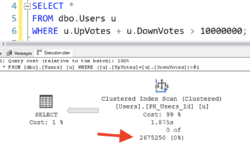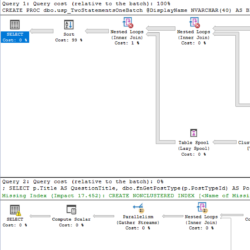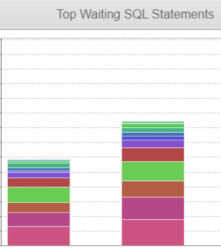“I’m getting index seeks. Why are my row estimates still wrong?”
11 Comments
If you’ve got good indexes to support your query, and statistics to help SQL Server guess how many rows will come back, how can SQL Server still come up with terribly incorrect row estimates? To demonstrate, I’ll use the 2018-06 version of the Stack Overflow database, but any recent version will work as long as…
Read More















